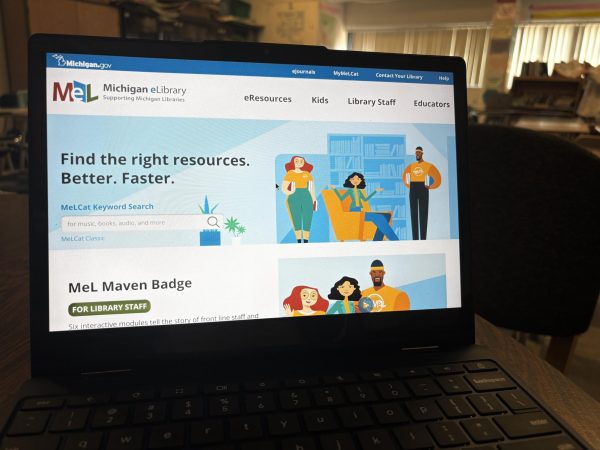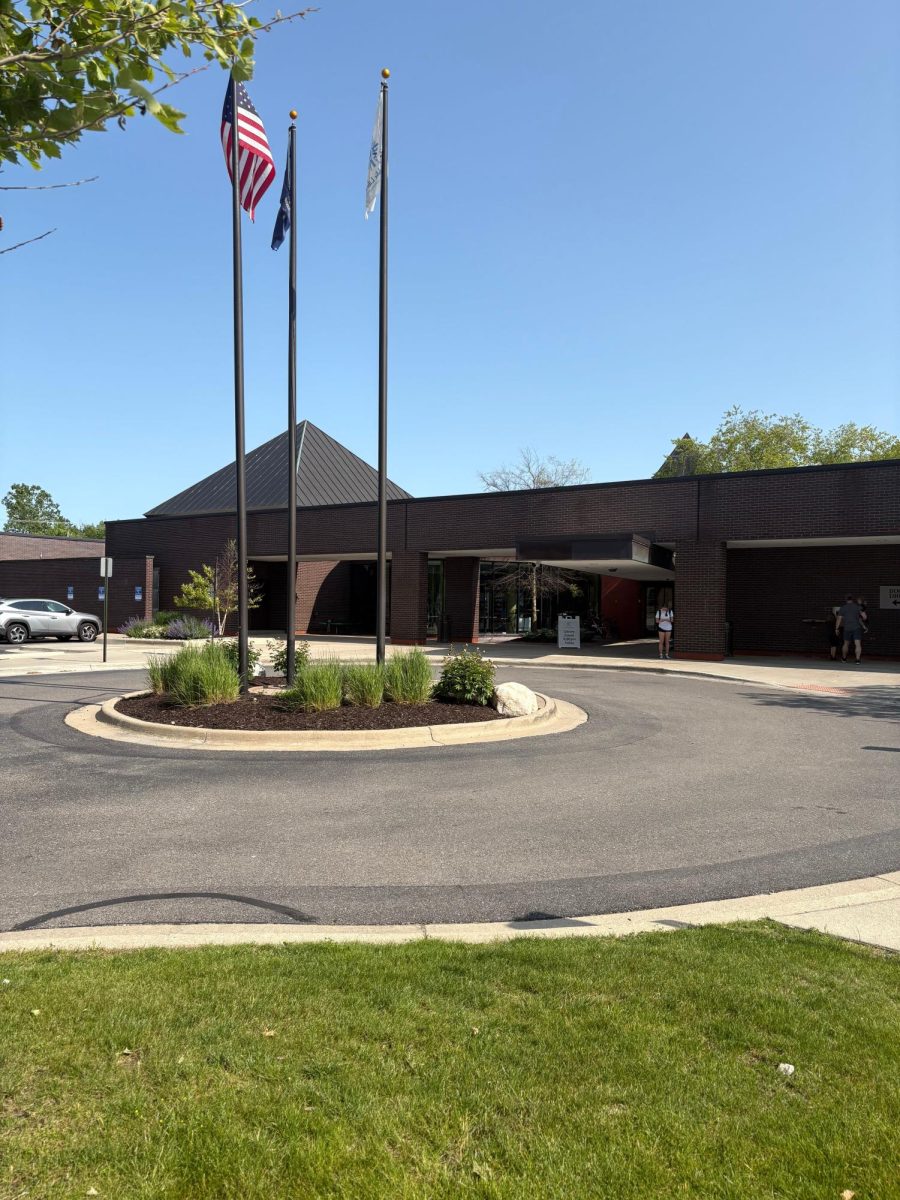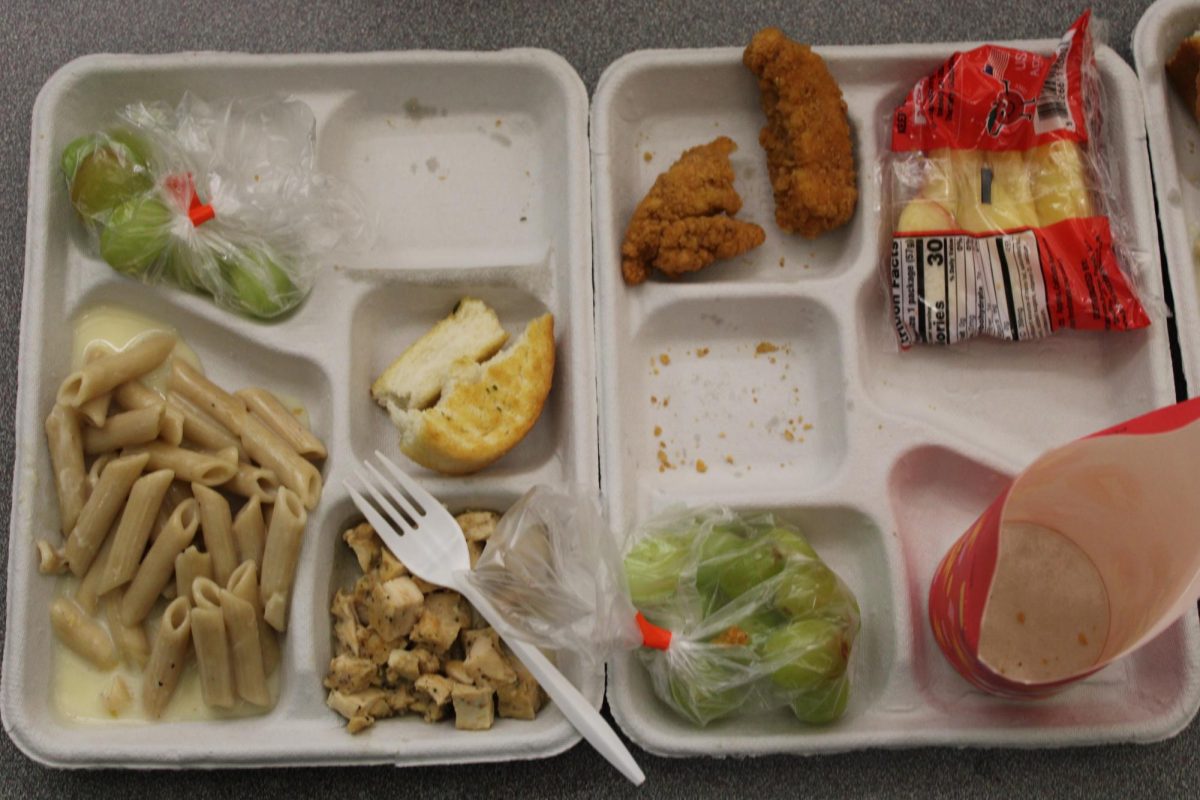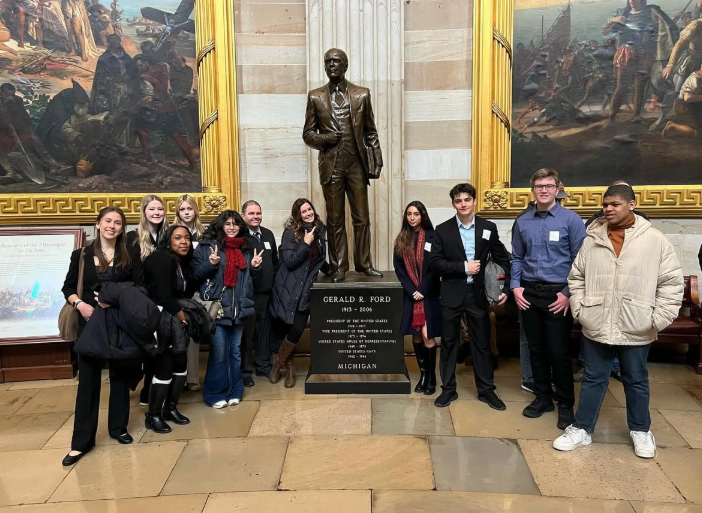The Institute of Museum and Library Services (IMLS), which provides the majority of funding for the function of state and local libraries, was eliminated by executive order by President Donald Trump on the 54th day in office of his second term in March 2025.
IMLS provides grants to State Library Administrative Agencies (SLAA), which then distributes resources to libraries throughout the state.
According to IMLS, the Library of Michigan, which is the official state library of Michigan supporting local libraries through various programs, received approximately $4.78 million in grants in fiscal year 2024 to fund these initiatives.

Michigan eLibrary (MeL), an online research database containing full-text scholarly articles, books and images, and more, was granted approximately $1.87 million in funding from IMLS.
Canton Public Library director Eva Davis said, “If the state is no longer paying for those research databases [for users to be able] to do homework, to research market demographics if you’re a business owner, to get research your ancestry and genealogy, those databases will go away, and then we will have to pay for them.”
In regards to the cost of upholding these services, “We would pay for [the services] as a single library, so we wouldn’t have the volume discount that the state of Michigan gets. So it’s going to cost us money directly, and it’s going to cost us more than it otherwise would, because we’re only going to be negotiating for our community,” said Davis.
The Canton Public Library, with a budget of around $7 million, does not have a firm number at this time for the estimated cost of providing said services.
MeLCat, currently free for patrons, is the catalog and interlibrary loan system for participating communities under MeL. In this system, libraries upload the annotated citations of everything in their inventory to a statewide catalog, and people can search for media. If their local library does not own that media, a library that does can ship it to the person’s local library.
A statewide courier system moves requested interloan items between libraries. “We borrowed about 9,000 items, and we lent out 7,000 items. So that is basically 16,000 items that saved all of our libraries’ money,” as each library did not have to purchase its own materials, said Davis.
The current interloan system allows Michiganians throughout the state within participating communities, no matter the economic standing of their communities, to have equal access to the same materials.
For the courier system, “Just as far as the back and forth of materials, we estimate it’s going to cost about $125,000 a year just for us to pay for the shipping,” said Davis.
Davis said, “If I had to sum it up in one sentence, [the elimination of federal funding to libraries] creates inequity. If there is not statewide access to these resources, it creates inequity because you end up with students who might not be able to get to the Canton Library databases.”
The funding cuts to IMLS are slated to take effect September 2025, and would be unavailable for the 2025-26 school year.
Canton junior Lauren Meyers expressed concern about the cuts. “I use the different library resources all the time because I am an IB student. [My academics] would be greatly affected because I have to write a lot of essays in my program where we have to use scholarly resources, and it’s really hard to get these sources easily without sources like MeL.”
Behind the scenes, the Canton Public Library and other libraries across the state are already seeing the effects of the cuts. The training provided by the Library of Michigan for professional development and certification of librarians has been canceled.
Efforts are being made to stop the dismantling of IMLS. “The attorney general of Michigan, Dana Nessel, has joined with 20 other states to file a lawsuit, saying that the IMLS, among other agencies, is being shut down unlawfully, that it didn’t go through the proper process, and therefore it must be allowed to continue,” said Davis.
Davis has advice for library patrons. “I think reaching out to the attorney general, whether you want the cuts to happen or you don’t want the cuts to happen [can inform the government the wishes of its citizens]. If the attorney general hears from the residents of Michigan and says, ‘We want you to pursue this’ or ‘We don’t want you to pursue this,’ that’s helpful. Because this is a federal-level issue, reaching out to our U.S. Senators, Elissa Slotkin and Gary Peters, and then reaching out to our U.S. representative. So for us, it’s Debbie Dingell,” said Davis.
During a visit to P-CEP to meet with AP Government students, U.S. House Representative Debbie Dingell said, “I am very worried about the budget that has been passed. I voted against it. To be perfectly frank, we’re about to go into something called reconciliation.” Reconciliation is an expedited legislative process tied to the budget that allows certain spending, revenue, and debt limit bills to pass the Senate with a simple majority, bypassing the filibuster.
The budget cuts to the libraries are one of many issues Dingell is working to mitigate during the current legislative session. “I am going to fight for the libraries, but I’ll tell you where I’m starting. I will do everything I can to protect Social Security, Medicare and Medicaid,” Dingell said.
While keeping said entitlements a priority, she recognizes the importance of the coming cuts to public libraries. “I’m going to start on making sure everybody’s got access to health care and people have a safe and secure retirement. It’s an earned benefit. It’s not something that’s been given out for free. And then we have to go fight for programs like that, and we all at the federal, state and local level, have to keep our library strong.”










